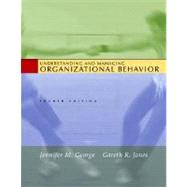
| Introduction | 1 | (6) | |||
| Address of the President of the Republic of Angola | 7 | (4) | |||
| Message of the WTO Secretary- General | 11 | (4) | |||
| Welcome by the Prime Minister of Angola | 15 | (4) | |||
| Speech of the Minister of Tourism of Angola and Chairman of the Commission | 19 | (4) | |||
| Speech of the WTO Secretary-General | 23 | (10) | |||
|
|||||
|
33 | (12) | |||
|
|||||
|
45 | (10) | |||
|
|||||
|
55 | (12) | |||
|
|||||
|
67 | (8) | |||
|
|||||
|
75 | (16) | |||
|
|||||
|
91 | (18) | |||
|
|||||
|
|||||
|
109 | (12) | |||
|
|||||
|
121 | (8) | |||
|
|||||
|
129 | (26) | |||
|
|||||
|
155 | (14) | |||
|
|||||
|
169 | (30) | |||
|
|||||
|
|||||
|
199 | (24) | |||
|
|||||
|
223 | (12) | |||
|
|||||
|
235 | (12) | |||
|
|||||
| Conclusions | 247 | (10) | |||
|
|||||
| NEPAD Resolution on Tourism | 257 | (6) | |||
| List of Participants | 263 |
The New copy of this book will include any supplemental materials advertised. Please check the title of the book to determine if it should include any access cards, study guides, lab manuals, CDs, etc.
The Used, Rental and eBook copies of this book are not guaranteed to include any supplemental materials. Typically, only the book itself is included. This is true even if the title states it includes any access cards, study guides, lab manuals, CDs, etc.